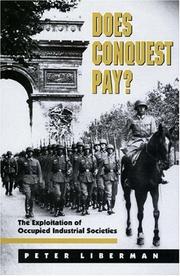| Listing 1 - 10 of 24 | << page >> |
Sort by
|
Book
ISBN: 2940503397 2940503400 Year: 2013 Publisher: Graduate Institute Publications
Abstract | Keywords | Export | Availability | Bookmark
 Loading...
Loading...Choose an application
- Reference Manager
- EndNote
- RefWorks (Direct export to RefWorks)
All across the globe, individuals mobilize international support in defense of Palestinian rights and a resolution to the Israeli-Palestinian conflict. However, these international activists are neither the beneficiaries of their efforts nor do they closely identify with the Palestinian population. Through an ethnographic analysis of social movement organizations and international activists active in the West Bank, this paper tries to understand the emergence of transnational collective action fighting for Palestinian rights since the second Intifada. To do so, this paper addresses structural as well as personal factors behind activists’ mobilization. Combining elements from social movement theory and Bourdieusian sociology, I conduct a meso-level inquiry of the principal solidarity organizations alongside a micro-level investigation of international volunteers participating in such organizational structures. Highlighting the specificity of transnational activism in the West Bank both in terms of opportunity structures and the lived experiences of international activists, I have tried to provide insight on how and why the Palestinian rights movement is able to gather so much international support.
Gender & Ethnic Studies --- Social Sciences --- Ethnic & Race Studies --- belligerent occupation --- security --- identity --- human rights --- culture religion and identity --- non-state actors and civil society --- conflict security and peacebuilding --- democracy --- governance --- religion
Book
ISBN: 2940415447 294041548X Year: 2011 Publisher: Graduate Institute Publications
Abstract | Keywords | Export | Availability | Bookmark
 Loading...
Loading...Choose an application
- Reference Manager
- EndNote
- RefWorks (Direct export to RefWorks)
Since the mid-19th century military powers and various writers have tried to define the notion of belligerent occupation and, in particular, the beginning thereof. There are many situations in which a state of occupation is controversial or even denied. When is control so effective that an invasion turns into a state of belligerent occupation? What is the minimum area of a territory that can be occupied; a town, a hamlet, a house or what about a hill taken by the armed forces? This paper examines what seems to be an important gap of the Fourth Geneva Convention: contrary to the Hague Regulations of 1907 it does not provide a definition of belligerent occupation. It is argued that the Fourth Geneva Convention follows its own rules of applicability and that therefore the provisions relative to occupied territories apply in accordance with the “functional beginning” of belligerent occupation approach from the moment that a protected person finds him or herself in the hands of the enemy. Henry Dunant Prize 2010 from the Geneva Academy of International Humanitarian Law and Human Rights (ADH Geneva)
International Law --- Law, Politics & Government --- Treaties, International --- Geneva Convention Fourth (1949) --- belligerent occupation --- protection of civilians --- dispute settlement --- conflict security and peacebuilding --- International Committee of the Red Cross (ICRC) --- humanitarian action

ISBN: 0429228759 1134931603 1280327359 0203317327 0203143469 9781134931606 9780203143469 0415058465 9780415058469 0415058465 9781134931552 9781134931590 113493159X 9780429228759 9781280327353 9780203317327 Year: 1992 Publisher: Savage, Md. : Barnes & Noble Books,
Abstract | Keywords | Export | Availability | Bookmark
 Loading...
Loading...Choose an application
- Reference Manager
- EndNote
- RefWorks (Direct export to RefWorks)
In this exploration of the nature of occupation, Eric Carlton concentrates on the complex relationship between military authority and civilian population and explores the methods used by dominant powers ot maintain their authority. Drawing from a wide range of case studies, including examinations of British colonial interests in India and the Nazi atrocities of the Second World War, Dr Carlton assesses the nature of social control and the effect of ideology on the exercising of power, and considers the moral aspects of military repression.
Military government --- Military occupation --- Colonies --- Colonial administration --- Public administration --- Belligerent occupation --- De facto doctrine (International law) --- Occupation, Military --- Occupied territory --- Armed Forces in foreign countries --- War (International law) --- Conquest, Right of --- Military rule --- Civil-military relations --- History. --- Administration.
Book
ISBN: 1474418678 0748676023 9781474418676 9780748676002 0748676007 9780748676026 9780748675999 074867599X 074867599X 9780748675999 147442841X 9781474428415 Year: 2016 Publisher: Edinburgh Edinburgh University Press
Abstract | Keywords | Export | Availability | Bookmark
 Loading...
Loading...Choose an application
- Reference Manager
- EndNote
- RefWorks (Direct export to RefWorks)
An understanding of military occupation as a distinct phenomenon first emerged in the 18th century. This book shows how this understanding developed and the problems that the occupiers, the occupied, commentators and the courts encountered.
Military occupation --- Belligerent occupation --- De facto doctrine (International law) --- Occupation, Military --- Occupied territory --- Armed Forces in foreign countries --- War (International law) --- Conquest, Right of --- Military government --- History. --- HISTORY / Military / General. --- Military occupation.
Book
ISBN: 1107201705 1283330296 9786613330291 1139134809 1139129759 1139133691 0511504799 0511818254 0511506937 9781139129756 9781139134804 9780521896375 0521896371 9780521720946 052172094X 9780511506932 9780511818257 9781107201705 9781283330299 6613330299 9781139133692 9780511504792 Year: 2009 Publisher: Cambridge New York Cambridge University Press
Abstract | Keywords | Export | Availability | Bookmark
 Loading...
Loading...Choose an application
- Reference Manager
- EndNote
- RefWorks (Direct export to RefWorks)
The customary law of belligerent occupation goes back to the Hague and Geneva Conventions. Recent instances of such occupation include Iraq, the former Yugoslavia, the Congo and Eritrea. But the paradigmatic illustration is the Israeli occupation, lasting for over 40 years. There is now case law of the International Court of Justice and other judicial bodies, both international and domestic. There are Security Council resolutions and a vast literature. Still, numerous controversial points remain. How is belligerent occupation defined? How is it started and when is it terminated? What is the interaction with human rights law? Who is protected under belligerent occupation, and what is the scope of the protection? Conversely, what measures can an occupying power lawfully resort to when encountering forcible resistance from inhabitants of the occupied territory? This book examines the legislative, judicial and executive rights of the occupying power and its obligations to the civilian population.
Military occupation. --- War (International law) --- Hostilities --- International law --- Neutrality --- Belligerent occupation --- De facto doctrine (International law) --- Occupation, Military --- Occupied territory --- Armed Forces in foreign countries --- Conquest, Right of --- Military government --- Law --- General and Others
Book
ISBN: 9781469628127 1469628120 9781469626963 1469626969 9781469626956 1469626950 9798890849519 Year: 2016 Publisher: Chapel Hill
Abstract | Keywords | Export | Availability | Bookmark
 Loading...
Loading...Choose an application
- Reference Manager
- EndNote
- RefWorks (Direct export to RefWorks)
In the early 20th century, the US set out to guarantee economic and political stability in the Caribbean without intrusive military interventions - and ended up achieving the opposite. Using military and government records from the US and the Dominican Republic, this work investigates the extent to which early 20th century US involvement in the Dominican Republic changed both Dominican history and the conduct of US foreign policy.
Military occupation --- Belligerent occupation --- De facto doctrine (International law) --- Occupation, Military --- Occupied territory --- Armed Forces in foreign countries --- War (International law) --- Conquest, Right of --- Military government --- Social aspects --- United States --- Dominican Republic --- Foreign relations --- Politics and government --- History
Book
ISBN: 1350257028 1350252689 135025262X Year: 2022 Publisher: London [England] : [London, England] : Bloomsbury Academic, Bloomsbury Publishing,
Abstract | Keywords | Export | Availability | Bookmark
 Loading...
Loading...Choose an application
- Reference Manager
- EndNote
- RefWorks (Direct export to RefWorks)
"This open access book explores how different spatial geographies emerged, adapted or were transformed in various occupied and colonial settings around Asia, showing how the experiences of those living under occupation shaped and was shaped by new interpretations and typologies of 'space'. With case studies across South, Southeast and East Asia and through a variety of disciplinary perspectives, Spatial Histories of Occupation adopts a trans-Asian comparative approach to show how the experiences of occupation and colonialism shifted under particular spatial typologies, particularly in urban, maritime and rural settings. Revealing the similarities, differences and connections that existed between and across different spaces of foreign occupation and colonialism in modern Asian history, this book shows how a focus on historical geography and 'space' can revise our broader categories and conceptualisations related to occupation; be it under colonial, wartime or Cold War powers. The open access edition of this book is available under a CC BY-NC-ND 4.0 licence on www.bloomsburycollections.com. Open access was funded by The European Research Council."--
Colonies --- Military occupation. --- Imperialism --- History --- Asia --- Politics and government. --- Foreign relations. --- Miltary occupation. --- Belligerent occupation --- De facto doctrine (International law) --- Occupation, Military --- Occupied territory --- Armed Forces in foreign countries --- War (International law) --- Conquest, Right of --- Military government

ISBN: 0801457327 0801458560 0801446155 1336282886 9780801446153 9780801458569 9780801457326 Year: 2010 Publisher: Ithaca, NY
Abstract | Keywords | Export | Availability | Bookmark
 Loading...
Loading...Choose an application
- Reference Manager
- EndNote
- RefWorks (Direct export to RefWorks)
Few would contest that the U.S. occupation of Iraq is a clear example of just how fraught a military occupation can become. In Occupational Hazards, David M. Edelstein elucidates the occasional successes of military occupations and their more frequent failures. Edelstein has identified twenty-six cases since 1815 in which an outside power seized control of a territory where the occupying party had no long-term claim on sovereignty.In a book that has implications for present-day policy, he draws evidence from such historical cases as well as from four current occupations-Bosnia, Kosovo, Afghanistan, and Iraq-where the outcome is not yet known. Occupation is difficult, in Edelstein's view, because ambitious goals require considerable time and resources, yet both the occupied population and the occupying power want occupation to end quickly and inexpensively; in drawn-out occupations, impatience grows and resources dwindle.This combination sabotages the occupying power's ability to accomplish two tasks: convince an occupied population to suppress its nationalist desires and sustain its own commitment to the occupation. Structural conditions and strategic choices play crucial roles in the success or failure of an occupation. In describing those factors, Edelstein prescribes a course of action for the future.
Military occupation --- History & Archaeology --- History - General --- Military occupation. --- United States --- Armed Forces --- Occupation militaire --- États-Unis --- Forces armées à l'étranger --- Belligerent occupation --- De facto doctrine (International law) --- Occupation, Military --- Occupied territory --- Armed Forces in foreign countries --- War (International law) --- Conquest, Right of --- Military government

ISBN: 3486563459 3486595938 Year: 1998 Publisher: De Gruyter
Abstract | Keywords | Export | Availability | Bookmark
 Loading...
Loading...Choose an application
- Reference Manager
- EndNote
- RefWorks (Direct export to RefWorks)
Wohl kaum eine Ereignis der deutschen Geschichte hatte so vielfältige und weitreichende Folgen wie das Ende des Zweiten Weltkrieges. Der Schock produzierte eine wahre Flut an Überlegungen, Planspielen und Denkschriften, die sich immer wieder mit der Frage der politischen, gesellschaftlichen und moralischen Erneuerung beschäftigten. Weitgehend unbekannt sind in diesem Zusammenhang die heftigen Diskussionen geblieben, die seit Sommer 1945 im deutschen Südwesten entbrannten. Katholische Intellektuelle und Honoratioren sahen nun den Zeitpunkt gekommen, die nationale Bindung aufzugeben; an die Stelle eines preußisch-kleindeutschen Reichs sollte eine stammesföderalistisch geprägte Neugliederung treten. Überlegungen dieser Art lassen sich bereits vor 1933 zwischen Lörrach, Konstanz und Karlsruhe, aber auch bis Augsburg und Bregenz nachweisen. Zusätzliche schien die Aufteilung der Länder Baden und Württemberg durch die französische und amerikanische Besatzungszone, die Chance für eine völlig neue Grenzziehung zu erhöhen. Auf der Basis unbekannter französischer, deutschen, schweizerischer und österreichischer Quellen sowie bislang unzugänglicher Privatnachlässe schildert der Autor minutiös den Verlauf der Diskussion und die Visionen der wichtigsten Wortführer.
Military government --- French --- Reconstruction (1939-1951) --- Military occupation. --- History --- Belligerent occupation --- De facto doctrine (International law) --- Occupation, Military --- Occupied territory --- World War, 1939-1945 --- Frenchmen (French people) --- Military rule --- Reconstruction --- Armed Forces in foreign countries --- War (International law) --- Conquest, Right of --- Postwar reconstruction --- Ethnology --- Public administration --- Civil-military relations --- Military occupation

ISBN: 0691029865 0691002428 9786613339706 1400821746 1283339706 1400812542 9781400821747 9781283339704 1400804930 Year: 1998 Publisher: Princeton, NJ
Abstract | Keywords | Export | Availability | Bookmark
 Loading...
Loading...Choose an application
- Reference Manager
- EndNote
- RefWorks (Direct export to RefWorks)
Can foreign invaders successfully exploit industrial economies? Since control over economic resources is a key source of power, the answer affects the likelihood of aggression and how strenuously states should counter it. The resurgence of nationalism has led many policymakers and scholars to doubt that conquest still pays. But, until now, the "cumulativity" of industrial resources has never been subjected to systematic analysis. Does Conquest Pay? demonstrates that expansion can, in fact, provide rewards to aggressor nations. Peter Liberman argues that invaders can exploit industrial societies for short periods of time and can maintain control and economic performance over the long term. This is because modern societies are uniquely vulnerable to coercion and repression. Hence, by wielding a gun in one hand and offering food with the other, determined conquerors can compel collaboration and suppress resistance. Liberman's argument is supported by several historical case studies: Germany's capture of Belgium and Luxembourg during World War I and of nearly all of Europe during World War II; France's seizure of the Ruhr in 1923-24; the Japanese Empire during 1910-45; and Soviet hegemony over Eastern Europe in 1945-89. Does Conquest Pay? suggests that the international system is more war-prone than many optimists claim. Liberman's findings also contribute to debates about the stability of empires and other authoritarian regimes, the effectiveness of national resistance strategies, and the sources of rebellious collective action.
Occupation militaire --- Biens ennemis --- Military occupation --- Belligerent occupation --- De facto doctrine (International law) --- Occupation, Military --- Occupied territory --- Armed Forces in foreign countries --- War (International law) --- Conquest, Right of --- Military government --- Economic aspects --- Case studies. --- Economic aspects. --- Enemy property --- Aspect économique --- Case studies --- Military occupation - Economic aspects. --- Military occupation - Economic aspects - Case studies.
| Listing 1 - 10 of 24 | << page >> |
Sort by
|

 Search
Search Feedback
Feedback About UniCat
About UniCat  Help
Help News
News